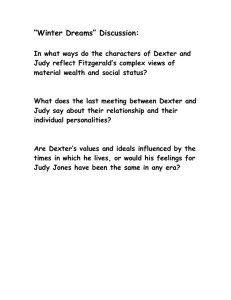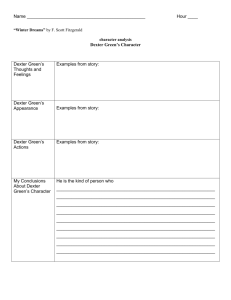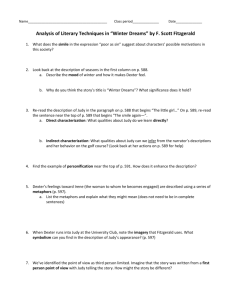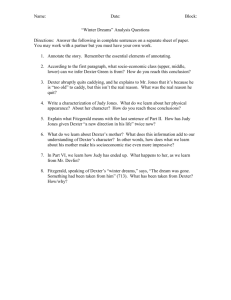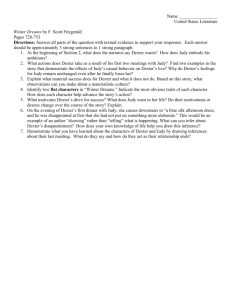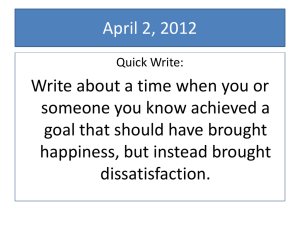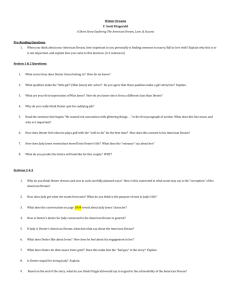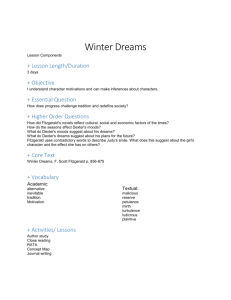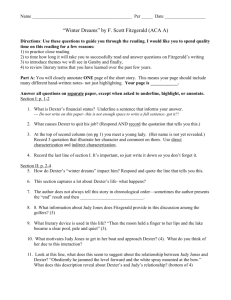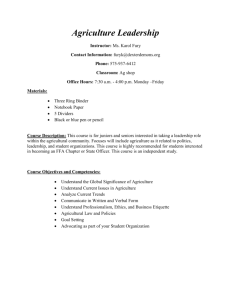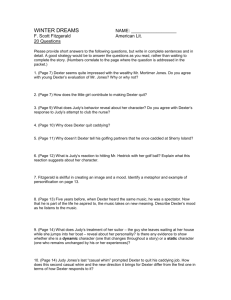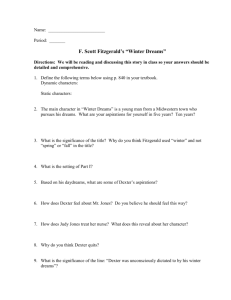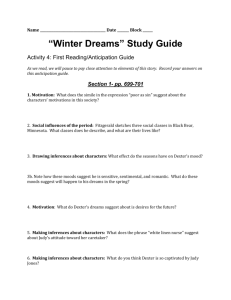Winter Dreams
advertisement
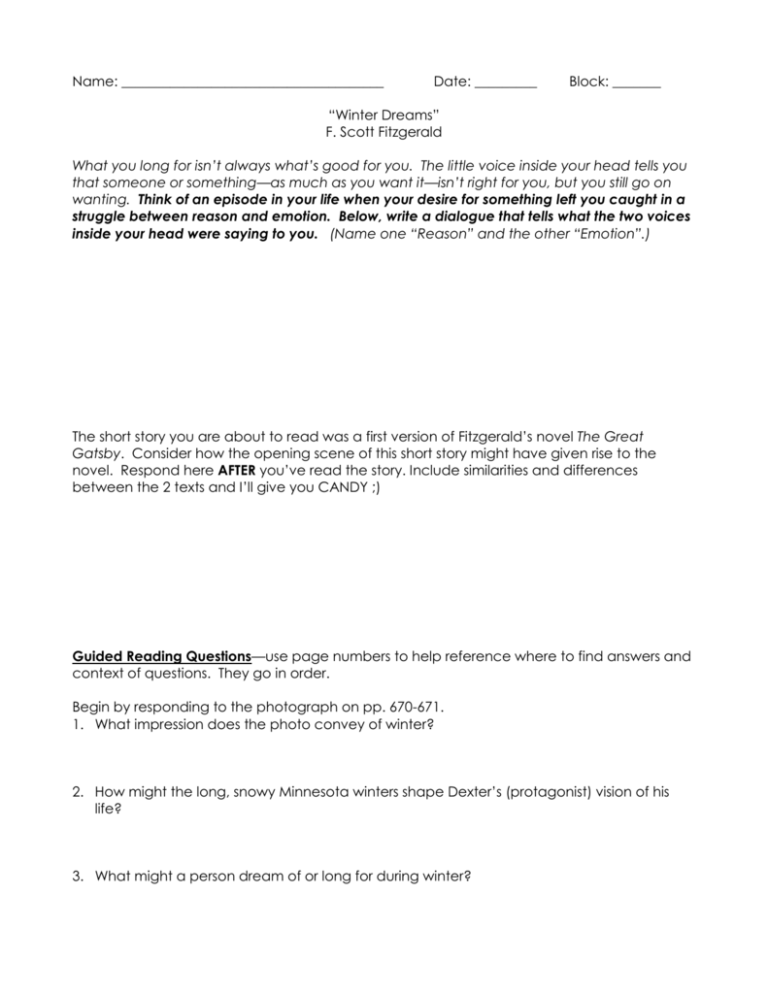
Name: ______________________________________ Date: _________ Block: _______ “Winter Dreams” F. Scott Fitzgerald What you long for isn’t always what’s good for you. The little voice inside your head tells you that someone or something—as much as you want it—isn’t right for you, but you still go on wanting. Think of an episode in your life when your desire for something left you caught in a struggle between reason and emotion. Below, write a dialogue that tells what the two voices inside your head were saying to you. (Name one “Reason” and the other “Emotion”.) The short story you are about to read was a first version of Fitzgerald’s novel The Great Gatsby. Consider how the opening scene of this short story might have given rise to the novel. Respond here AFTER you’ve read the story. Include similarities and differences between the 2 texts and I’ll give you CANDY ;) Guided Reading Questions—use page numbers to help reference where to find answers and context of questions. They go in order. Begin by responding to the photograph on pp. 670-671. 1. What impression does the photo convey of winter? 2. How might the long, snowy Minnesota winters shape Dexter’s (protagonist) vision of his life? 3. What might a person dream of or long for during winter? 4. [p. 670] What do Dexter’s fantasies suggest about his character? 5. [p. 671] What can you conclude about Judy from Fitzgerald’s description? 6. [p. 672] Why does Dexter decide to quit his caddy job? 7. [pp. 674-675] What more do we learn about Judy through the comments of OTHER CHARACTERS? 8. [p. 675] Why might Judy’s invitation have such an effect on Dexter’s feelings and on his life? 9. [p. 676] What is revealed about Judy and the way she views herself through Fitzgerald’s description of Judy Jones’ smile? 10. [pp. 676-678] How is Dexter characterized? 11. [p. 679] How does Dexter’s behavior change after his decision to stop pursuing Judy? 12. [pp.679-680] How is Irene characterized AND what method does FItzgerald use here: direct (descriptions by the author) or indirect (through the character’s action, other character’s thoughts/dialogue about the character) characterization? 13. [p. 680] What do Dexter’s thoughts suggest about his feelings for Judy? 14. [p. 680] How is Judy different from the previous times she and Dexter have met? In what ways is she the same? 15. [p. 681] Do you think Dexter is making a wise choice when Judy invites him in? 16. [p. 681] What does the 2nd paragraph of section V reveal about Dexter? 17. [p. 682] Why do you think Dexter was relieved to go to war? 18. [p. 682] Why does Dexter become angry with Devlin? 19. [p. 682] How does Fitzgerald paint his final picture of Judy’s character? 20. [p. 683] What does Dexter’s reaction to the news of Judy suggest about his character? 21. [p. 683] How do Dexter’s feelings for Judy dictate the course of his life?
